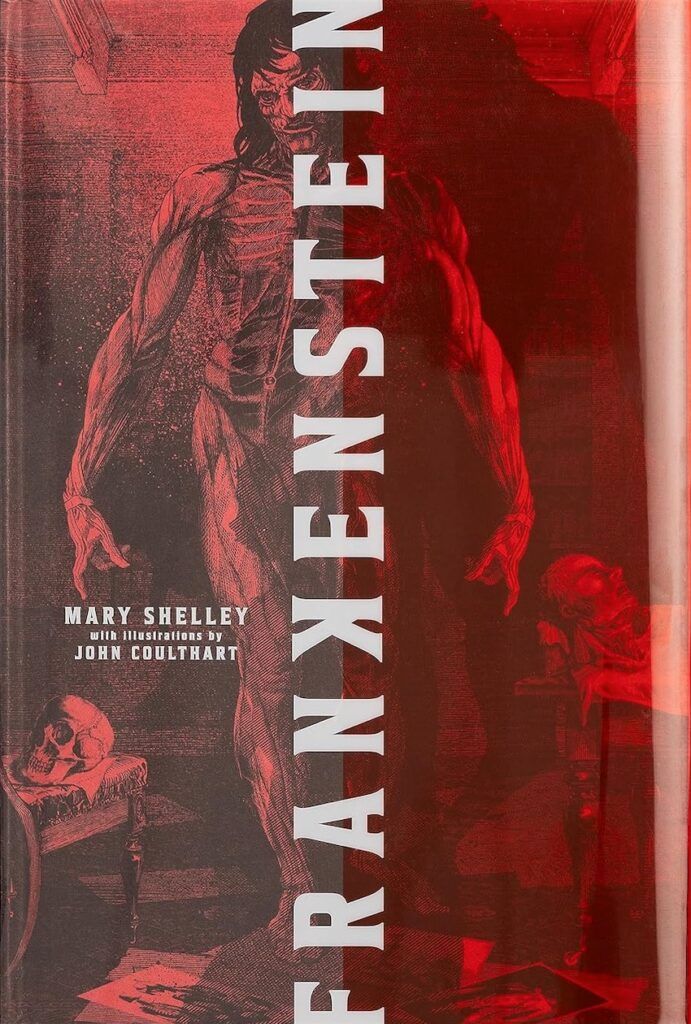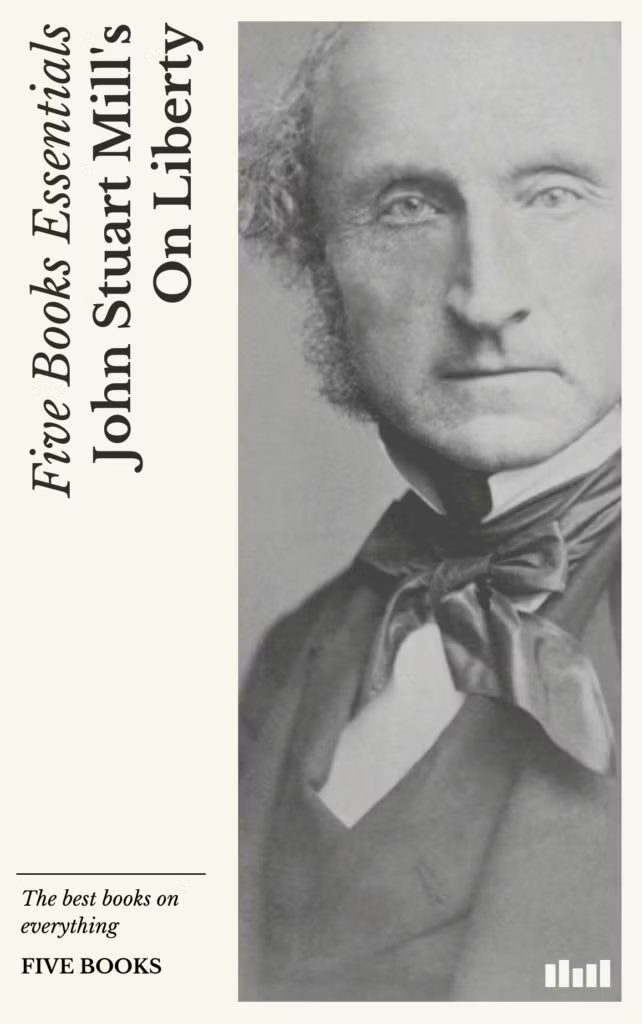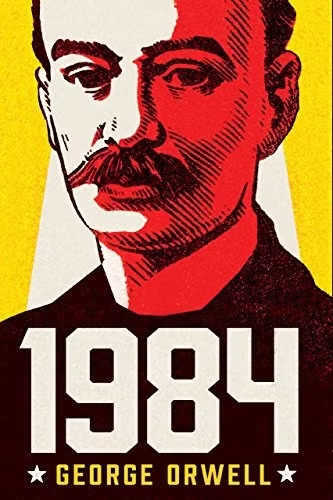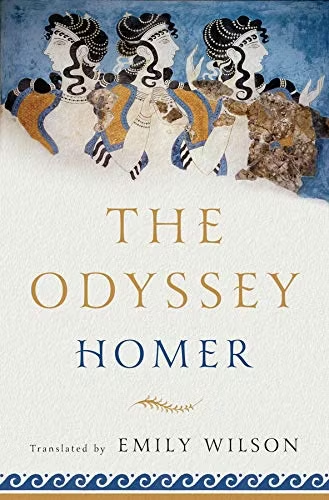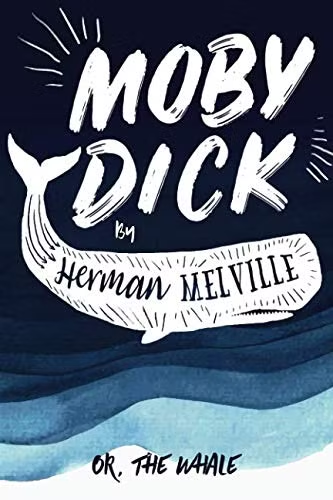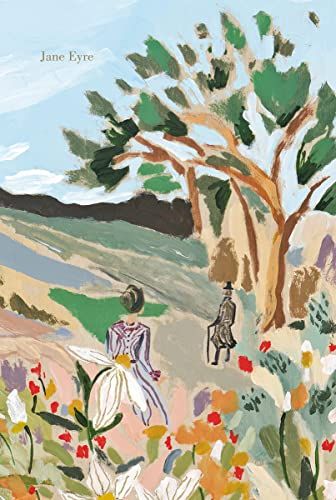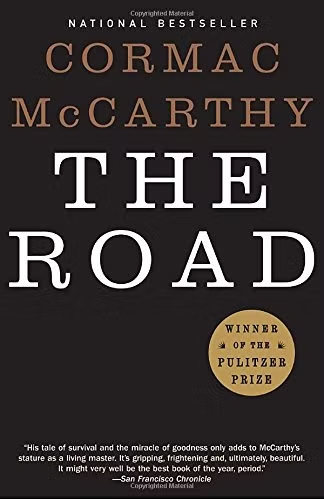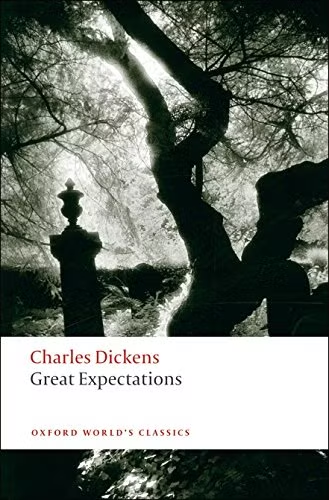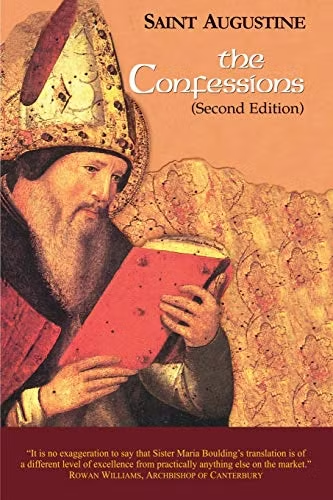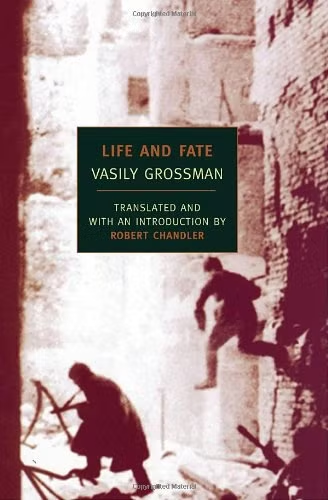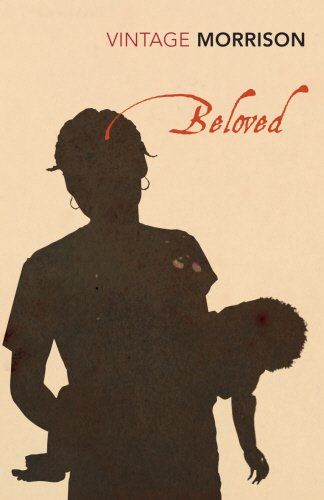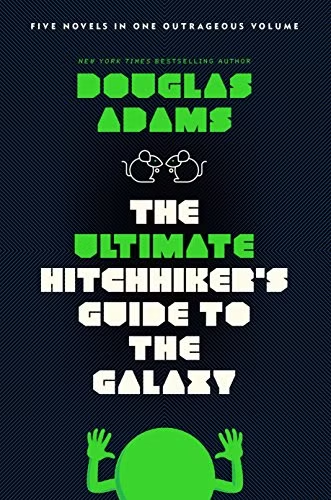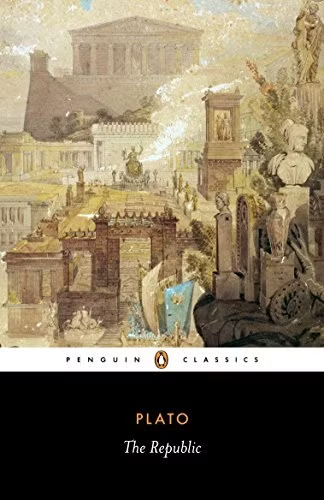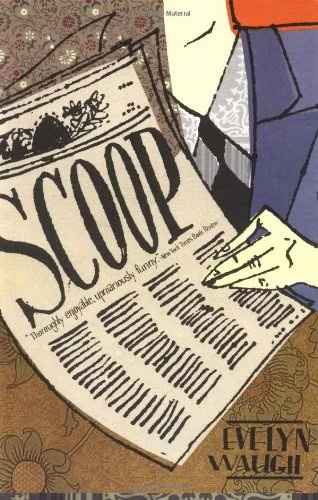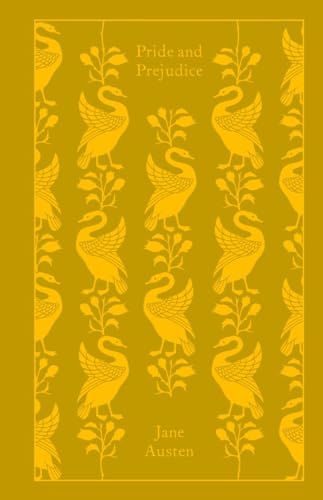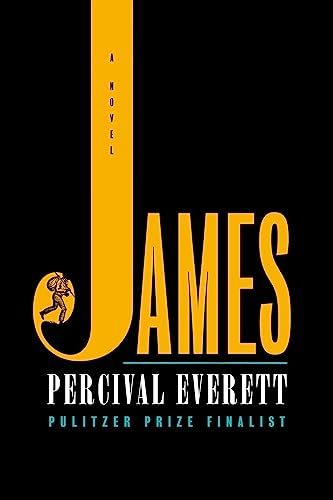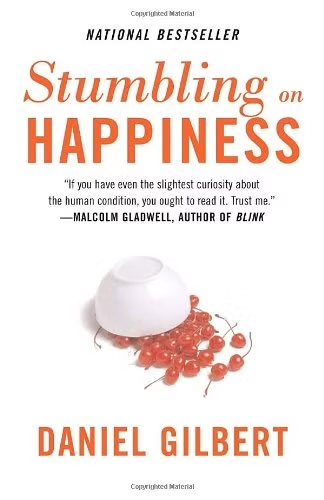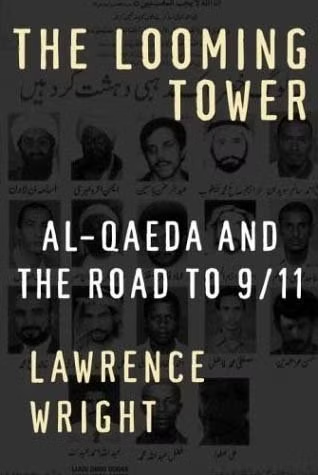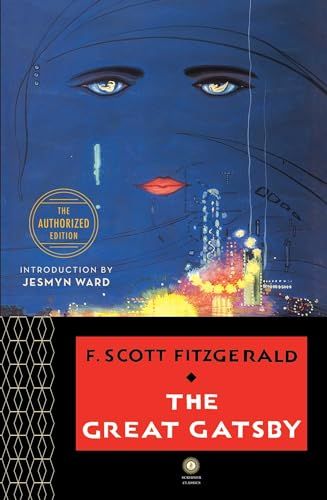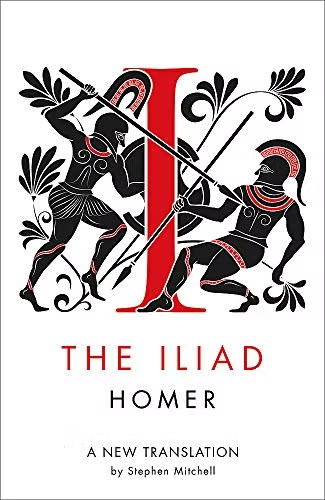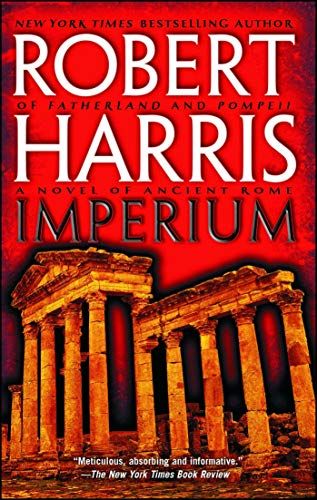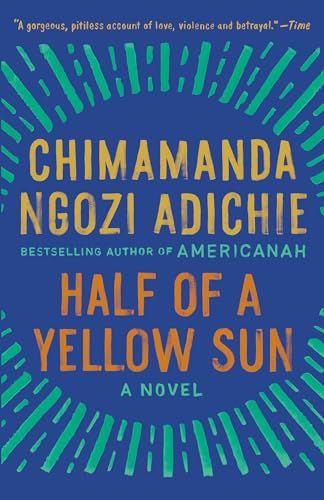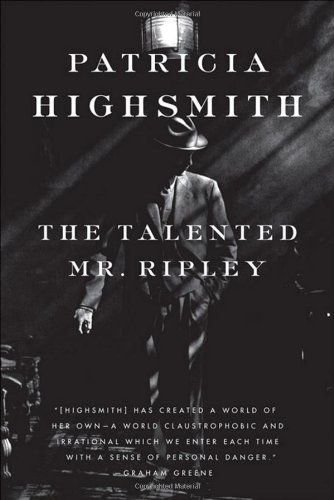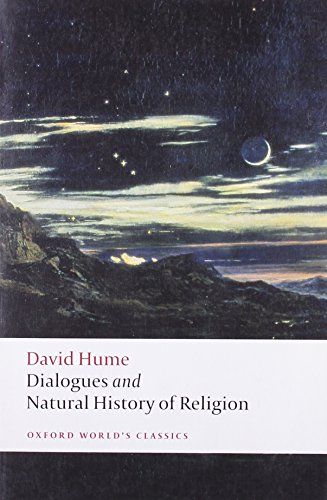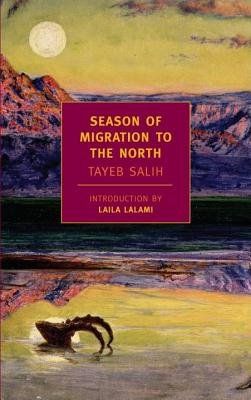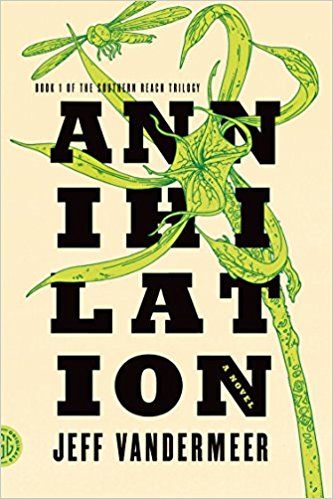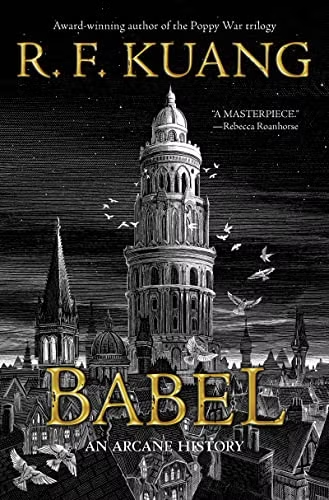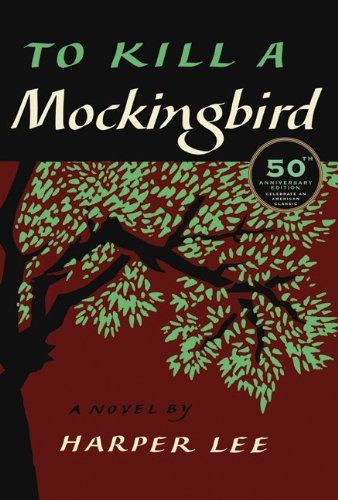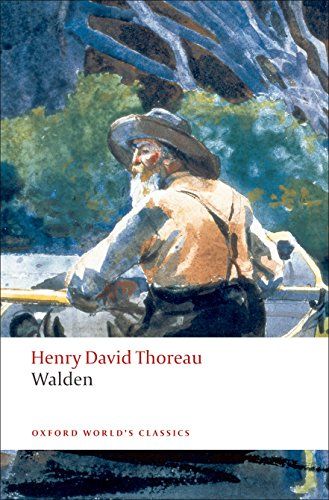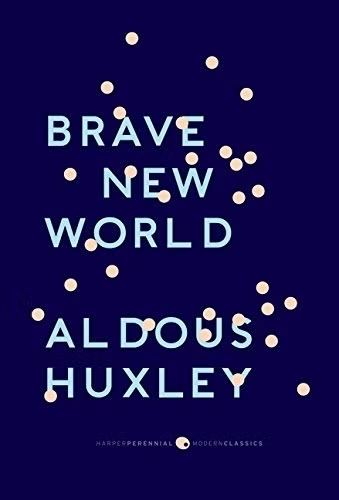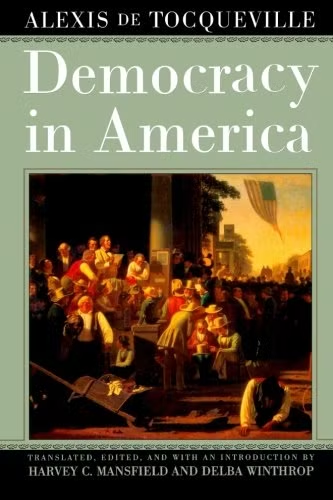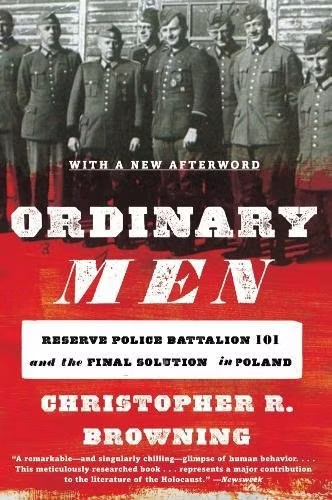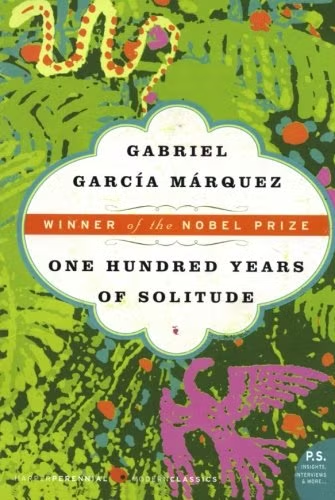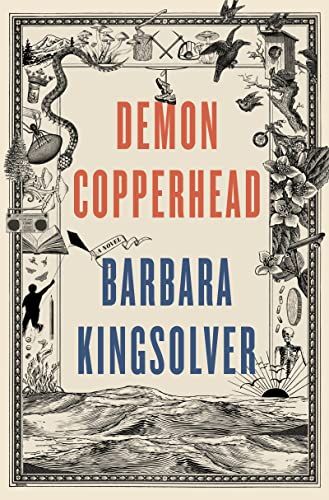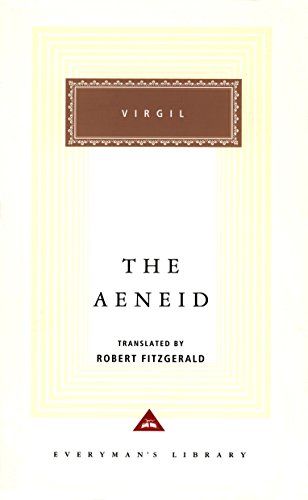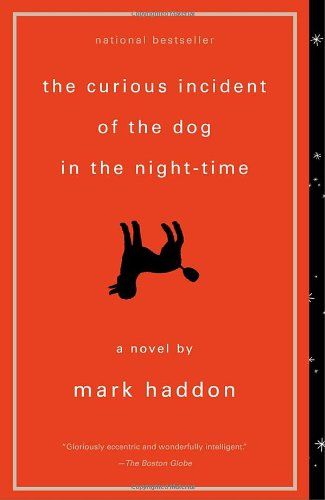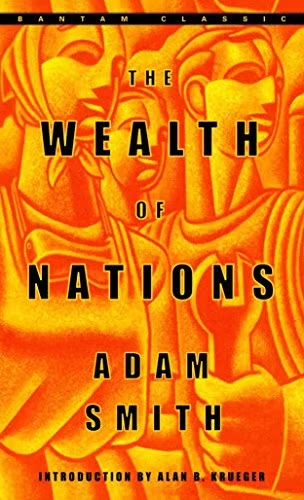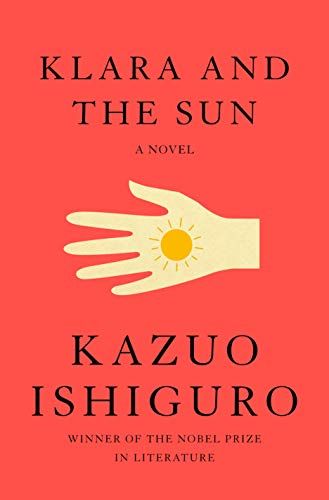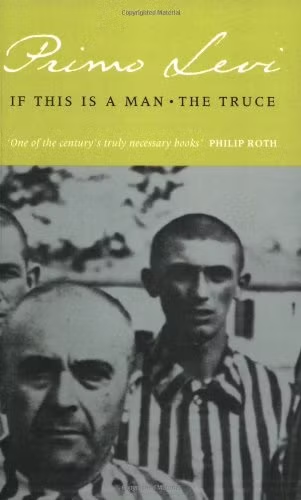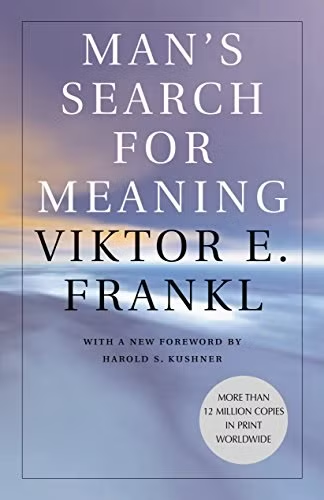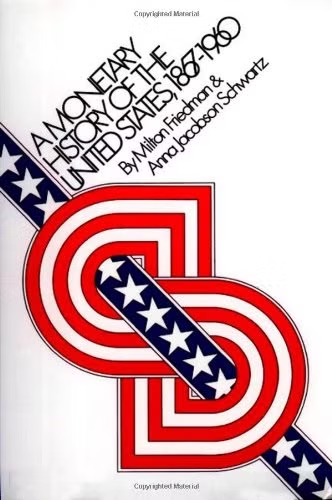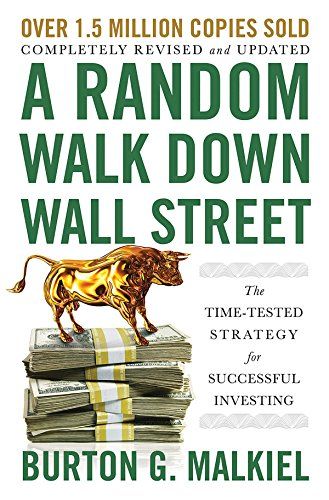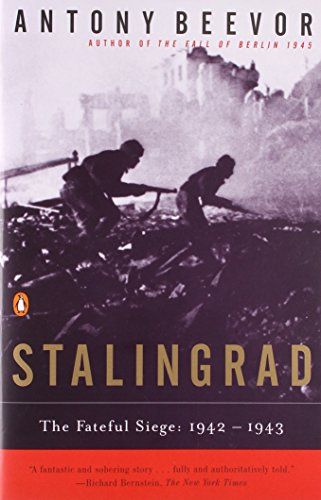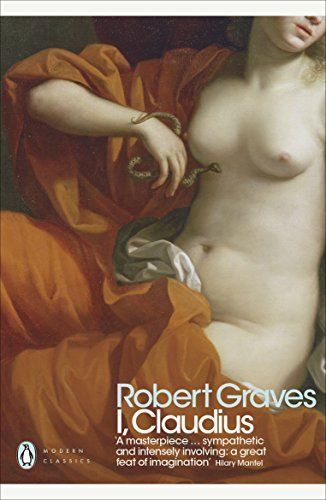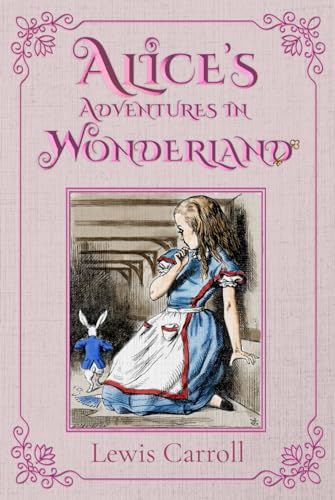The Best Books of All Time?
Looking for a good book? We have the world’s largest collection of expert book recommendations. Over the past decade-and-a-half, we’ve asked hundreds of experts to pick the five best books in their field—and to explain in detail why those particular books are so important. The results of this 15 year project are listed below. These are books that have been recommended over and over again, suggesting they are some of the most important books ever written. The experts who picked them for us range from philosophers to politicians, economists to novelists, eminent historians to comedians. With one or two noteworthy exceptions, our most recommended books are not new books being promoted by publishers, but books that have stood the test of time. Many are already out of copyright and available for free, though if your budget can stand it, there’s a lot to be said for the informative introduction and footnotes that a good editor, selected by an established publisher, can provide.
Our book recommendations are listed in order, so our most recommended books appear at the top. Each entry includes the number of experts who have recommended that particular book. Click on each book title to find out what experts we interviewed said about it in greater detail.
Browse by subject: Best Philosophy Books of All Time |
Middlemarch
by George Eliot
Middlemarch by George Eliot (real name: Mary Ann Evans), was first published in 1871. The novel is set in the fictitious English town of Middlemarch during 1829–1832.
“I think one does often turn to novelists to get a sense of other people’s lives. It was written in 1871, but it’s written about a period 40 or so years before, the period when Ada Lovelace flourished. It’s about an intelligent woman trapped by the expectations and the circumstances of the society she finds herself in.” Read more...
The best books on Ada Lovelace
Ursula Martin, Mathematician
“It’s one thing to enjoy a book, and quite another to to cherish the time spent with a set of characters. I’m envious of anyone getting to know Dorothea Brooke, Tertius Lydgate, Mary Garth and Casaubon for the first time. If I could wipe my memory clean and go back and reread it fresh, I would.” Read more...
War and Peace
by Leo Tolstoy
War and Peace by Leo Tolstoy is regarded by many as one of the greatest novels ever written. In our interviews, philosophers, historians and novelists have recommended it as critical reading for understanding a variety of subjects. Like many great books, it was greeted with some scepticism on publication.
“Tolstoy famously said of War and Peace that it wasn’t even a novel. In a sense, it’s a total history of that epoch in Russia in a fictional form…It’s very interesting what happens with the novel linguistically. There’s been a study of the French words in the novel, because there are a large number, and they feature particularly in the early phases of the novel. Towards the end, the novel becomes more Russian in its literary and vernacular style, in its lexicon and syntax. In a sense, the Russian language is the true character of the novel. The growing Russianness of the language is the epiphany, that moment of self-discovery, that the Russian aristocracy goes through at that time.” Read more...
Orlando Figes, Historian
“War and Peace was ground-breaking in its age, because up until then, war had always been something that was glorified; he looked at war through the psychology of the people experiencing it, and the way they expressed that experience in their lives. That was a profound breakthrough. For instance, he shows people suffering from post-traumatic stress.” Read more...
Steve Killelea, Nonprofit Leaders & Activist
Frankenstein (Book)
by Mary Shelley
Mary Shelley started writing the Frankenstein story when she was 18, and it was published in London two years later. Her chilling tale of how Victor Frankenstein put together a creature by sewing together human parts is said to be the first true science fiction story. If you’ve never read it, or read it a long time ago, it’s definitely worth picking up again, as the subtleties of the original book, entitled Frankenstein: the Modern Prometheus, may have been displaced in your mind by the various cartoons and monster-movies connected to the original only by the name ‘Frankenstein’ (and some people, who haven’t read the book, think Frankenstein is the name of the monster, rather than the name of the scientist who put the creature together).
Read below why it’s one of the books most frequently recommended by the experts we’ve interviewed—on subjects as diverse as fear of death, women and society, and transhumanism.
“Brian Aldiss has famously argued that science fiction starts with Mary Shelley’s novel, and many people have agreed with him.” Read more...
Adam Roberts, Novelist
“Frankenstein can be seen as an experiment—or almost a laboratory—that brings together science and literature…Frankenstein is very much a novel for the twenty-first century. Mary Shelley was trying to push the boundaries of science and technology. The details of the science have changed, but the big questions remain as important for us today as they were for her. “ Read more...
Nick Groom, Literary Scholar
On Liberty
by John Stuart Mill
Is diversity of opinion valuable? Why should we care about free speech? When can someone legitimately interfere in our lives to stop us from doing something? What should restrict the scope of our personal liberty?
On Liberty by John Stuart Mill was originally published in 1859, but his exploration of these questions still feels incredibly contemporary. On Liberty remains a central text of the modern liberal tradition, as our interviews below with philosophers, politicians, historians and political commentators make clear.
“What this book does is hammer home one truth. Mill described it as a ‘philosophic textbook of a single truth’. According to him it was hugely influenced by his discussions with his wife, Harriet Taylor, though she didn’t physically write it, and it’s his name on the cover. As the title suggests, it’s focused on liberty, on freedom. It puts forward what’s come to be known as ‘the harm principle’ which is that the only justification for the state or other people interfering with the lives of adults is if they risk harming others with their actions” Read more...
Key Philosophical Texts in the Western Canon
Nigel Warburton, Philosopher
“On Liberty is the classic statement of traditional liberal values about the limits of state coercion. It’s an eloquent argument for personal liberty on the grounds that it’s the condition in which human beings are most likely to flourish and be happy.” Read more...
The best books on The Rule of Law
Jonathan Sumption, Historian
“In terms of how technology is working in our modern surveillance powers, it’s a terrifyingly prophetic book in some of its implications for 21st-century human life. Orwell would deny that it was prophecy; he said it was a warning. But in fact, distinguished Orwell scholar Professor Peter Davis once made a list of all the things that Orwell got right, and it was a couple of fairly long paragraphs, and it was really rather terrifying.” Read more...
D J Taylor, Biographer
“Nineteen Eighty-Four is seriously read in China by intellectuals, who see similarities between the world of George Orwell and present-day China.” Read more...
The best books on Dystopia and Utopia
Chan Koonchung, Novelist
Dracula
by Bram Stoker
Dracula by Bram Stoker is the classic 1897 Gothic horror story. The most famous vampire story, Dracula has underlying themes of race, religion, superstition, science, and sexuality. Find out why Dracula is one of Five Books’ most recommended books. Also worth looking at are Bram Stoker’s Notes for Dracula which contains Stoker’s research notes.
“Dracula is very explicit. That’s what’s so surprising about it.” Read more...
The best books on Sex in Victorian Literature
Claire Jarvis, Literary Scholar
“I like to read Dracula as one of the great novels of London. Stoker himself was an Irish immigrant to London. The Count is a central European immigrant to London. He initially moves to Carfax Abbey, in the suburbs, before gentrifying himself and moving to Piccadilly.” Read more...
Darryl Jones, Literary Scholar
The Odyssey
by Homer and translated by Emily Wilson
“Tell me about a complicated man.
Muse, tell me how he wandered and was lost
when he had wrecked the holy town of Troy,
and where he went, and who he met, the pain
he suffered in the storms at sea, and how
he worked to save his life and bring his men
back home.”
Odyssey, opening lines (Emily Wilson translation)
If you’re interested in Homer and the poem of the Odyssey, the 2017 translation by Emily Wilson, Professor of Classical Studies at the University of Pennsylvania, is a great place to start. Not only is it a highly readable translation, but the introduction provides a lot of context and historical background for anyone wondering who Homer was, when the poem was first written down etc.
Many of us would love to listen to the Odyssey, as that’s how it was first delivered back in 700 BCE. Fortunately, the American actress Claire Danes has narrated the audiobook—so stick in your headphones, put your feet on the sofa, and press play.
“I find the Odyssey so fun to read because it is partly about impression management. In addition to being a strong, savvy, competent hero figure, Odysseus is a storyteller with great powers of persuasion and negotiation. He influences people and convinces them that he’s trustworthy. At times, he needs to trick people.” Read more...
“Homer was prototypical literature, and in a sense the holy book of ancient Greece. It laid out much of the fundamental mythology; and for a certain period it was even performed on state occasions. It was the ultimate classic for the ancient world.” Read more...
Sarah Ruden, Literary Scholar
“I read Moby-Dick about 13 years ago, way before I started to write naval fiction. I read it because I really like the film Jaws, and the main character in that was based on Ahab in Moby-Dick. I read it and I just really, really liked it. Moby-Dick was the book that really started my love of sea stories. It’s about crews at the extreme facing quite formidable forces and seeing how they behave in those situations. I like the way the sea is treated as a character all the way through the book, even before they get on board the ship. The sea is prevalent in everything, this ominous force in the background. I like the characters and the different dynamics between them. Starbuck, the first mate, is maybe my favorite fictional character of all time.” Read more...
The Best Naval Historical Fiction
Katie Daysh, Novelist
“I thought about responding to your call for a list of the top 5 American novels with ‘1) Moby-Dick 2) Moby-Dick 3) Moby-Dick’—an obsessive answer that would be true to the spirit of this monomaniacal book! I won’t go full Ahab and claim that it is THE great American novel, but I will confess it is my favorite. There’s something about its dizzying mix of high and low, Herman Melville’s exuberant love of language, and the novel’s remarkable capaciousness (everything reminds me of Moby-Dick!) that makes me love to read it, reread it, teach it, joke about it, tweet about it, reference it at the slightest provocation.” Read more...
The Best 19th-Century American Novels
Nathan Wolff, Literary Scholar
Jane Eyre
by Charlotte Brontë
Jane Eyre was published in 1847—with the novel’s author listed as ‘Currer Bell’—and was an immediate commercial success. The main protagonist, Jane, is an orphan who has an extremely tough life before meeting the man of her dreams. Unfortunately, he has dark secrets and the sense of foreboding that pervades the novel makes it also something of a thriller.
“Jane Eyre in some respects…is the original domestic noir…there’s a sense of building threat and building crisis in the book. But I also love the social commentary and the feminism. It’s my favourite book of all time…I read it out loud to my daughter when she was about 15 and it’s just an incredible book” Read more...
Lucy Atkins, Novelist
“It wasn’t until my third reading of the book that I realised Brontë had slipped the supernatural into Jane Eyre.” Read more...
Sarah Perry, Novelist
“I first read it as a student, and I remember finishing this book while I was sitting on a train and weeping, and people looking at me, wondering if I was going through some kind of crisis. It was the first time I’d ever just wept at a book. It’s a strange feeling. And it made me think: this is what literature can do. This is the power it has.” Read more...
The best books on The End of the World
Paul Cooper, Historian
“The Road is a very spare novel by Cormac McCarthy. Humanity has been wiped out, for the most part. There’s a man and his son traveling on a road to try to get to where it’s rumored that sprouts of civilization are starting to grow again. It’s a very minimalistic book. It’s very sparse and elegiac, just with those two characters.” Read more...
Elliot Ackerman, Military Historians & Veteran
“What the rest of Great Expectations shows is that having Christmas lasting all the way through your life might not be a good thing. Having a Santa Claus figure who keeps throwing gifts and money at you when they’re not necessarily wanted or deserved might be a handicap.” Read more...
The best books on Dickens and Christmas
Robert Douglas-Fairhurst, Literary Scholar
“It is one of the most perfect novels ever written.It’s got a wonderful plot. It’s about good and bad money, you don’t know who Pip’s benefactor is, you’re wrong-footed—as he is—all the time. It’s about terrible damage. It’s got this fantastic suspense about what happens to Magwitch. It’s sad, but also it’s got wonderful humour in it and wonderful characters. It’s got Wemmick, one of the first commuters. It’s just brilliant.” Read more...
The Best Charles Dickens Books
Jenny Hartley, Biographer
“It is an endlessly capacious, inventive, stimulating book. I won’t say it has something for everyone but it has, for its sheer blend of different approaches, a great deal for a great number of people. The fact that the whole thing is presented as a conversation with God, for a start. And Augustine is remarkably self-exposing and self-disclosing. It’s an extraordinary book for someone who’s just been ordained as a bishop to write. The Confessions had to be on this list and it is most people’s way into Augustine. It is this unbelievably pliant and fruitful work. Every time you read it, you notice new things.” Read more...
Catherine Conybeare, Classicist
“St Augustine is, in some ways, misunderstood and misappropriated in modern scholarship and popular perception. I can understand why, because reading him can be a bit of a hard slog to begin with. His Confessions can seem unfashionably self-hating, and the drama that’s being played out, the way he makes a first-person address towards this God figure, feels a bit artificial and it can put people off. But if you work out what’s going on, what his motivation is, and what the context is, what he’s making is an incredibly modern, intimate, psychological diagnosis of the human condition.” Read more...
Simon Yarrow, Historian
Life and Fate
by Vasily Grossman and translated by Robert Chandler
Life and Fate, a novel set in World War II by Soviet writer Vasily Grossman, is one of our most recommended books on Five Books (including by historians). Modeled on Tolstoy’s War and Peace, Grossman brought into it his experience as a journalist, accompanying the Red Army at major battles, including Stalingrad and Berlin. He was also among the first to enter Treblinka and witness firsthand the horrors of the Holocaust. Sadly for Grossman, the book was considered too harmful to be published in his lifetime.
Life and Fate is a long novel. If you want to listen to it as an audiobook, there’s no unabridged version, BUT there is a dramatised version of Life and Fate, starring Kenneth Branagh and David Tennant, that lasts a manageable 8 hours.
(Stalingrad is the precursor to Life and Fate, translated into English for the first time in 2019 and also well worth reading)
“Life and Fate…is probably the most important work of fiction about World War II. But, in fact, it is more than just a fiction because it is based on very close reporting from his time with the soldiers. It is a deliberate act of literary homage to Tolstoy as one can see in the title. It is definitely the War and Peace of the 20th century.” Read more...
The best books on World War II
Antony Beevor, Military Historians & Veteran
“It’s the first novel to come out of the 1940s and 50s that attempts a comparative indictment of Hitlerism and Stalinism, the two varieties of totalitarianism that Grossman knew too well.” Read more...
The Best Vasily Grossman Books
Maxim D Shrayer, Literary Scholar
“Beloved is hard to categorize. I read this when I was at university many years ago, for my undergraduate degree. I remember feeling that I had never read anything like this in my life; the way it’s written is so unique. It’s very much a gothic fantasy, but it’s using the Gothic to look at slavery, and that horrific past that affected so many people. The protagonist, Sethe, was born a slave and is haunted by her ghost baby. The intrigue for me was that she had killed this child, and yet it was very clear that she loved this child. Why would you do such a thing? – and that really takes you into the horrors of slavery, and the kind of life that she did not want for her child.” Read more...
“Today the vast majority of scholars agree that slavery was the single most important factor leading to the Civil War, touching virtually every other major political and cultural issue of the day – from economics to state autonomy to national expansion. As a professor of American literature, I know of no novel that better illustrates the dehumanizing nature of slavery and the personal traumas it produced than Beloved. Part ghost story, part historical novel, the plot follows the protagonist, a Black woman named Sethe who escaped slavery with her four children. When slave-catchers track her down to Ohio with plans to return the family to slavery, Sethe chooses to kill her children rather than see them live a life of bondage. She manages to kill her oldest daughter, Beloved, and wounds her two sons. This act of violence at once horrifies all who witness it, black and white, and yet it stands as a powerful repudiation of the institution of slavery and the evils it promotes.” Read more...
Classic Novels of the American Civil War
Craig A. Warren, Literary Scholar
“Arthur Dent, his hero, is a very ordinary—dull, some would say—Earth man, who discovers that his house is about to be demolished by bulldozers. As he’s dealing with county council officialdom, a friend called Ford Prefect helps him escape the destruction of the Earth, which is being blown up by alien bureaucrats. It’s one scale up. That’s the joke. For the novel, he took the first four episodes of the radio show and made them work as a novel with his own unique sense of flair and verve. That sense of humour. People who hate science fiction liked it because they thought it was taking the piss out of science fiction. And people who like science fiction liked it anyway. So it appealed broadly, to different audiences.” Read more...
Kevin Jon Davies, Film Director
“I miss Douglas Adams. He’s been dead since 2001. He occupied that area for me between friend and acquaintance. He was, I suppose, a work friend. The first book I ever wrote that did anything was The Companion to the Hitchhiker’s Guide to the Galaxy. I got to work with Douglas on it. Douglas Adams was a genius. A lot of the pleasure in reading Douglas Adams is in jokes that are elegantly and delightfully tuned while also commenting on the human condition.” Read more...
Neil Gaiman, Novelist
Republic
by Plato
In Ancient Greek, Plato’s famous dialogue was known as Politeia. The Romans called it Res Publica, the title we now use. Below, philosophers and political scientists recommend which edition of Plato’s Republic to read and explain, in detail, why it remains a work of such significance (Our interview about all Plato’s books and his life is with Melissa Lane of Princeton).
“The Republic is a mixture of metaphysics, political philosophy, and a kind of psychology about the balance of the different parts of the soul. Many of its ideas have subsequently resonated throughout the history of philosophy.” Read more...
Key Philosophical Texts in the Western Canon
Nigel Warburton, Philosopher
“It’s very readable even if you aren’t a professional philosopher. Take the story of ‘The Ring of Gyges,’ which raises the question of whether you would continue to act like a good person if you had a ring of invisibility that let you get away with doing whatever you wanted to do. That’s a fascinating thought experiment that anybody can appreciate.” Read more...
The best books on World Philosophy
Bryan Van Norden, Philosopher
“I think it is the best description of a foreign correspondent’s career, and I doubt it will ever be bettered. It’s still very relevant to this rather ridiculous life. When I was covering the early days of the Congo, a group of us were there, maybe five or six correspondents, and somebody had a battered copy of Scoop that we passed around. It just read straight – the life we were living was hardly exaggerated.” Read more...
Richard Beeston, Foreign Correspondent
“Everything about this book is perfect, from the prose to the characters to the Swiss-clock workings of the plot.” Read more...
Andy Borowitz recommends the best Comic Writing
Andy Borowitz, Comedians & Humorist
Pride and Prejudice (Book)
by Jane Austen
Pride and Prejudice was published more than 200 years ago, in 1813, but the book still speaks to us across the centuries. Written by Jane Austen when she was only 20, its original title was First Impressions. Like many great books, it was initially rejected by publishers and did not appear till years later, now under the title we know it by, Pride and Prejudice. By then, Austen had already had commercial success with Sense and Sensibility, a novel that also compares and contrasts two characters with the qualities (flaws) signalled in the title of the book.
“I have read Pride and Prejudice, I would guess, 40 or 50 times. I’ve taught it at every level of college, of graduate school…I think it’s always been my favourite, as it’s many people’s favourite among Austen’s novels…I loved it because it’s a fairy tale; it’s about the poor girl growing up and marrying Prince Charming. But I was always vaguely embarrassed by that as a scholar, because I didn’t think it was the best…When I was asked to annotate it, I wasn’t very enthusiastic about the idea. I was finally persuaded because I thought I could annotate it out of my head – I know the book practically by heart. I was so wrong” Read more...
Patricia Meyer Spacks, Literary Scholar
“The book is about the pleasure of being wrong. We forget that wrongness can be deeply pleasurable, but thankfully we have literature and art to remind us.” Read more...
Kathryn Schulz, Journalist
“Dominic Hoffman narrates this reimagining of Adventures of Huckleberry Finn, but this time Jim tells his own story. Hoffman’s performance captures the varying tone of Jim’s dialogue, highlighting the shifts in his vocabulary and rhythm. With its subtlety and attention to detail, Hoffman’s narration reinforces Jim’s character and narrative arcs as Jim takes back his agency in life.” Read more...
“James is obviously connected to Mark Twain’s Huckleberry Finn. It is not a retelling of that story, but in a way it’s the same universe. Percival has said himself that it’s not a correction. But is it a revisionist book? Yes, I guess it is. It’s from the perspective of Jim, or James, and we look at slavery from his perspective. We look at his incredible struggle, how his family is affected, how he has been separated from them and his struggle to reach them again. It has a revenge theme, kind of. But I guess I look at it as there being some historical catharsis, reading this book in relation to historical racism and slavery. It’s more of a cathartic narrative than a derivative one.” Read more...
The Best Novels of 2024: The Booker Prize Shortlist
Nitin Sawhney, Musicians, Music Critics & Scholar
“We tend to see ourselves as not unlike rats, creatures driven by the short-term reward centres in our brains. But what Gilbert does fantastically well is to argue that, actually, humans are better at long-term thinking than almost any other animal. A chimpanzee may strip off the leaves from a branch to make a tool to poke into a termite hole, but that chimp will never make a dozen of those tools and put them aside for next week. Yet this is exactly what humans do.” Read more...
The Best Books for Long-Term Thinking
Roman Krznaric, Philosopher
“Dan Gilbert, a dear friend of mine at Harvard, is the best writer in our field and one of our greatest thinkers. He is extremely creative and insightful.” Read more...
The best books on Behavioral Science
Nicholas Epley, Psychologist
The Looming Tower
by Lawrence Wright
The Looming Tower by Lawrence Wright is a detailed narrative history of the events leading to 9/11, based on five years of research and hundreds of interviews. Find out below why it is one of Five Books’ most recommended books.
“Reading this one book gives you an excellent grasp of the human story and the context from which al-Qaeda emerged.” Read more...
Audrey Kurth Cronin, Political Scientist
“Former counterterrorism agent John O’Neill, who died in 9/11, is the hero of this book. He played a central part in trying to take Al-Qaeda apart.” Read more...
The best books on Osama bin Laden
Peter Bergen, Journalist
“BAFTA-winning actor Jake Gyllenhaal becomes Nick Carraway, our guide through the glittering yet destructive pull of materialism in pre-Depression New York. Listening time is just under five hours.” Read more...
“The book showcases both the allure and the ricketiness of the American dream. The story shows the American dream is fragile despite its potency and persistence. It shows its perpetual obsolescence. We often hear that it’s harder to rise from the bottom to the top in the US than it is in many other countries. Even in Fitzgerald’s day, the fluidity of society was fading. Perhaps The Great Gatsby still seems germane because of the way it showed the mismatch between American actualities and American ideals, the two-faced character of the American dream, its materialism and idealism.” Read more...
The Iliad
by Homer
“The rage of Achilles—sing it now, goddess, sing through me
the deadly rage that caused the Achaeans such grief
and hurled down to Hades the souls of so many fighters,
Leaving their naked flesh to be eaten by dogs
and carrion birds, as the will of Zeus was accomplished”
—Iliad, opening lines (Stephen Mitchell translation)
The Iliad, a Greek poem dating from around 700 BCE, is a defining text of western literature. If you want to see what academics say about it and its author(s), Homer, start with our interview with Christopher Pelling, Regius Professor of Greek Emeritus at Oxford University, below.
Which translation of the Iliad should you read? British actor and author Stephen Fry recommends either Robert Fagles’s translation (1969), or that of poet and translator Stephen Mitchell, which was published in 2011.
Of course all those millennia ago, the Iliad would have been principally listened to, and modern technology means that’s once again easily possible by listening to the poem as an audiobook. Our own Iliad audiobook is the Robert Fagles translation, magnificently narrated by the British actor—and veteran of the British Classics scene—Derek Jacobi. You can also opt for the audiobook of the Stephen Mitchell translation, which is narrated by the English-American actor Alfred Molina.
So find a fireside to settle down next to, imagine a bard who has memorised hundreds of lines of poetry, plug in your headphones, and press play.
“It is worth remembering of course that Homer’s Iliad doesn’t cover the causes of the War … the Apple of Discord, the Judgement of Paris, birth of Achilles and Abduction of Helen and so on – nor the end of the war. The action of the Iliad begins in the final year of the ten year siege of Troy and dramatises the weeks that begin with the feud between Agamemnon and Achilles and end with the death of Hector.” Read more...
Stephen Fry, Comedians & Humorist
“Part of the Iliad’s brilliance is that it only takes four or five days of the action but you feel like it captures the 10 years’ war as a whole. There is a choice that Achilles has to make. He is told that he has two alternative fates: he could stay away from the war and live out a long life and nobody would ever know or remember him. Or he could go and win eternal fame and glory, but would have a short life. In a way, that is a version of a dilemma that keeps coming back.” Read more...
The best books on Ancient Greece
Christopher Pelling, Classicist
“It’s the story of Cicero, but it’s narrated by his slave and secretary Tiro. You have this interesting tension, wherein we have a story of all-consuming ambition, narrated by someone whose own ambitions and prospects are completely limited by their enslavement—and yet he does love and is devoted to Cicero. Beyond all of this, it’s just a very fun, propulsive narrative and brilliantly-done courtroom drama—or sequence of courtroom drama set pieces—taking place within this vividly conjured, well-researched late Republic Rome. It’s an excellent character study and a fun, fantastic read.” Read more...
Historical Novels Set During the Classical Era
Ferdia Lennon, Novelist
“In Imperium we see the life of Cicero through the eyes of his slave, Tiro. We know Tiro was a real person, who recorded everything Cicero wrote. The late Republic is my favourite period of any period of history ever. You get all the figures: Cicero, Caesar, Pompey, Crassus, Octavian, Antony and Cato. Robert Harris paints portraits of these people so nicely that even with Crassus, say, who comes up every so often, you get a sense of who he is.” Read more...
Half of a Yellow Sun
by Chimamanda Ngozi Adichie
The most celebrated of a new generation of Nigerian novelists bravely and brilliantly tackles an event that still seems to whisper in the heart of the country’s affairs perhaps more than any other: the devastating civil war of 1967-70.
“Half of a Yellow Sun centres around a family as they transition from a position of influence and privilege to being just regular citizens of the newly formed Republic of Biafra. I don’t know how much I need to tell you, but, basically, about six years after Nigerian independence there was a civil war known as the Biafran War. It’s a beautifully written, big swing of a novel with lots of themes: moral responsibility, ethnic allegiances, class, race. And it’s all set against the backdrop of this pivotal time in Nigerian history.” Read more...
Chioma Okereke, Novelist
“This novel came out to a real fanfare of people acclaiming it as a superb piece of fiction. I’d heard a lot of people talk about Chimamanda Ngozi Adichie and what a brilliant writer she is. I thought, ‘I’ve got to give this a go.’ Oh my goodness! It’s another really big, immersive novel by somebody who really knows their stuff. And because it’s such recent history—late 60s and 1970—she has been able to draw on primary sources. That’s a rare thing when you’re writing historical fiction, that it’s still within living memory. So you know it’s right, that the details are correct. It’s like reading news reports, but in this incredible narrative, in which you’re really bound up with the characters.” Read more...
Historical Fiction Set Around the World
Jane Johnson, Historical Novelist
“The idea that you want him to succeed even though he’s a psychopath is a real feat of literary genius. Because if anyone put that in a synopsis, you’d think, ‘That’s not going to work.’ Even though every part of your moral consciousness is telling you that it’s wrong, there you are thinking, ‘I want you to get away with this, I want it to go your way.’ To get us, as the reader, to empathize with somebody who is such a horrific, damaged person is just such brilliant writing.” Read more...
“It fascinates me that René Clément, the French film director, adapted this novel into a film called Plein Soleil (known as Purple Noon in the United States). In the story, Tom Ripley is sent from New York to Italy by the father of Dickie Greenleaf to bring Dickie back to the United States. As he ingratiates himself with his son, Tom Ripley adopts increasingly dangerous, amoral and murderous measures to reap the rewards of his lifestyle and finally, steal his inheritance. The novel starts in a gloomy Manhattan, where Ripley meets Dickie Greenleaf’s father. It’s not bright, it’s claustrophobic. And then we come to this Mediterranean world of plein soleil where in the movie everything is brightness—there’s a yacht, these lovely towns, and everybody is wearing lovely styles and costumes.” Read more...
The Best Book-to-Movie Adaptations
Peter Markham, Film Director
“I think that the most important contributions, the best books, in the philosophy of religion are these two little books that David Hume writes” Read more...
The best books on Atheist Philosophy of Religion
Graham Oppy, Philosopher
“Hume is the main man….It’s an interesting question whether he’s a good writer or not. I’ve always thought him a good writer, but I know some people read Hume and find him difficult. It’s partly just a question of period style. He does tend to write in very long sentences. I think that was just the typical writing of the time. In the 18th century people put a lot of commas and semicolons in, and there weren’t so many full stops. Present day readers can find that quite awkward.” Read more...
Julian Baggini, Philosopher
Season of Migration to the North
by Tayeb Salih and Denys Johnson-Davies (translator)
“In my opinion, it might be one of the best novels of the 20th century full stop. I picked it because it’s really good. It often comes top of these kinds of lists. It’s one of the few Arabic novels that has entered the canon of world literature. The book starts when the unnamed narrator comes back home to his small rural village after seven years of education abroad. That’s a classic trope of Arabic literature, so we are immediately on familiar ground. But things quickly move in unexpected directions. The narrator finds that there is a new resident of the village called Mustafa Sa’eed who has come from the capital Khartoum and is very popular with everyone there, although his past is a little murky.” Read more...
The Best 20th-Century Arab Novels
Raphael Cormack, Literary Scholar
“Tayeb Salih is basically a founder of what we call African immigrant writing, stories that are very popular at this particular time. In my opinion, Season of Migration to the North is amazing. As far back as the 1960s, Tayeb Salih was already tackling, in a vivid manner, the issues migrants to the West are confronted by: it’s hard to integrate because of cultural and religious differences, xenophobia, and the difficulties of getting employment or housing for not-properly-documented immigrants…I feel that African contemporary writing is in an age of restless migration to the North….Almost all the themes that he put there are what most writers at this particular moment are talking about. You can read Abdulrazak Gurnah, who won the Nobel Prize in Literature: Most of his themes are based on that. It’s as if he is haunted by the ghost of Salih.” Read more...
The Best African Contemporary Writing
Mphuthumi Ntabeni, Novelist
“Annihilation itself is very short, and intense and creepy and beautiful. We follow four women on an expedition into Area X: the anthropologist, the psychologist, the surveyor, and our protagonist the biologist. We don’t know names, or much more about Area X; we are told very early that two of the band especially don’t need to be named, as they will die imminently. This is the whole tone of the novel – sparse, tense, mysterious. For all that, the descriptions are incredibly evocative.” Read more...
“The Southern Reach is a research institution set up to investigate the mysterious ‘Area X’, an exclusion zone with strange and frightening effects on the human mind. We follow ‘the biologist’, one member of a four-woman team that has been dispatched into the zone. Long abandoned and fenced off, it has grown into a pristine wilderness – but it is haunted by traces of the expeditions that have gone before them. I can’t tell you how eerie and absorbing it is.” Read more...
The best books on Abandoned Places
Cal Flyn, Five Books Editor
“It’s a brilliant novel about an alt-reality Victorian England where translation has actual power. If you find these pairs of words that almost mean the same thing but not quite, you can inscribe them on silver bars, and they generate energy. These silver bars are used to power industry. So the British Empire is bringing linguists from all the colonised countries, from the most far-flung places, but then these linguists rebel. There’s an amazing scene where all the rebel linguists are in Oxford. These people speak everything and love languages—they have mad combinations of languages that no one but a linguist would have learned. And that love of real, arcane languages has brought them together, and in fact is what makes them start a revolution. It’s a deceptively fun book.” Read more...
The best books on Endangered Languages
Samantha Ellis, Memoirist
“There’s such an original magical concept at the heart of this book. A silver bar is engraved with the ‘same’ word in two different languages. However, the translation can never be direct, and whatever is lost in translation is produced magically by the silver. For example, gardens can be made magically tranquil if the word in one language conveys this tranquillity, and the other word does not.” Read more...
“It’s dated in many ways; it’s extremely sentimental. But it’s beautifully done – you can’t take a thing away from it.” Read more...
Scott Turow, Thriller and Crime Writer
“The case is about racism, but it’s also about white sexual fear of the black man, and the failed effort of white America to stop intermixing. I think the notion of the scary black man still permeates the American justice system today. I don’t think To Kill a Mockingbird is one of the greatest pieces of literature ever, but it is a very good window into the ingrained sexual fear that permeated at least the southern American justice system.” Read more...
The best books on Sex and Society
Eric Berkowitz, Journalist
“The beginning is hard going. Once you get past that, then suddenly you’re into these beautiful and inspiring descriptions of nature.” Read more...
The Best Books on the Philosophy of Travel
Emily Thomas, Philosopher
“Thoreau can be thorny to read but Walden is a tremendously important work in the history of environmental thinking and in the history of understanding our relationship with nature.” Read more...
Mark Peterson, Historian
“It shows the ways in which technology, our need for certain creature comforts and consumer culture can be used to manipulate us.” Read more...
The best books on Alternative Futures
Catherine Mayer, Politician
“It is a hilarious, and also very prescient, parody of utopias. Huxley goes back to the idea that coming together and forming a community of common interests is a great idea – it’s the basis of civil society. At the same time, when communities of common interests are taken to utopian degrees the self starts to dissolve into the larger community, you lose privacy and interiority; that becomes frightening. In Huxley’s parody, the people are convinced that they are melding together and that they are completely happy, but in the end it is utterly empty.” Read more...
Ellen Wayland-Smith, Miscellaneou
Democracy in America
by Alexis de Tocqueville
“Among the new objects that attracted my attention during my stay in the United States, none struck my eye more vividly than the equality of conditions. I discovered without difficulty the enormous influence that this primary fact exerts on the course of society; it gives a certain direction to public spirit, a certain turn to the laws, new maxims to those who govern and particular habits to the governed.”
—Alexis de Tocqueville, Democracy in America (Harvey Mansfield and Delba Winthrop translation), opening paragraph.
“Tocqueville, in a way, was the first sociologist, though that field didn’t exist in the 1830s, when he wrote the book. In it, he looks at the formal institutions of American democracy—Congress, and the presidency, and so forth—but what everybody really takes away from it is that those institutions ride on top of the morals and mores and habits of the underlying society…Tocqueville gives you a different analysis that looks beneath the surface of the visible institutions and tries to understand the moral habits that underlie the workings of those institutions. It’s really looking at the society rather than just the formal laws and whatnot.” Read more...
The best books on Liberal Democracy
Francis Fukuyama, Political Scientist
“It’s a masterpiece of sociological and political analysis. Tocqueville’s work still helps us understand America, 170 years after he wrote it.” Read more...
Stephen Breyer on his Intellectual Influences
Stephen Breyer, US Supreme Court Justice
Ordinary Men: Reserve Police Battalion 101 and the Final Solution in Poland
by Christopher Browning
How was it that a group of middle-aged men from Hamburg, most not even members of the Nazi party, led by a 53-year-old career policeman, carried out some of the worst atrocities of the Holocaust? Ordinary Men by American historian Christopher Browning, first published in 1992, sifts through their testimony to try and find some answers. In doing so, it reveals some unsettling truths for any human being reading its pages.
“This book, which is, Christopher Browning’s study of the interrogation of a battalion of German soldiers sent to take part in the ‘final solution’ in Poland in 1942, is quite astounding in terms of what he found out about ‘ordinary’ human cruelty and viciousness. These were ordinary men, as the title suggests. Yet they participated in absolutely brutal slaughter of completely innocent people. This wasn’t even in the context of organised war.” Read more...
The best books on The Psychology of Killing
Gwen Adshead, Medical Scientist
“The takeaway from reading this horror-filled book is that depredations on the scale of those that Browning describes can be perpetrated anywhere and by anyone.” Read more...
The best books on US Intervention
Lawrence Kaplan, Journalist
One Hundred Years of Solitude
by Gabriel García Márquez, translated by Gregory Rabassa
“Our greatest classic of all time, One Hundred Years of Solitude, is a fantasy novel. But when you go to libraries, you never see it in the fantasy section. They put it in the section of Latin American literature, or of classic literature or of Nobel Prize literature. But it is a fantasy…One Hundred Years of Solitude is a saga. It’s the story of a family, from the couple that had the first kids to the end of the family, which is also the end of times. When you read reviews of One Hundred Years of Solitude, they’ll say it’s the story of Latin America—and perhaps it is. But, essentially, it’s the story of a town from when it is founded until it finishes its history…It really amazes me that a person from a tiny town in the Caribbean area, which is not the most developed in the country, was able to accomplish this huge achievement. Cien años de soledad is a great novel like Don Quijote de la Mancha. It’s that big.” Read more...
Pilar Quintana, Novelist
“Rabassa has accomplished something utterly terrific in his translation of One Hundred Years of Solitude. This novel, which was revolutionary in its structure and its use of imagination, is now absolutely compelling in English as well as in Spanish. On the assumption that most people who have been influenced by García Márquez in the English speaking world have been influenced through Rabassa’s translation, it had a huge effect on novel writing in English. Writers like Toni Morrison, for example, or Salman Rushdie.” Read more...
Edith Grossman, Translator
“It was criticised as being poverty porn, but I don’t really see that. It does risk being wildly sentimental, but I kind of like that. It’s old school. It has a confident, Dickensian snap and brio, a broad, swinging-for-the-fences ambition, and it worked for me. And the ending is the complete clichéd happy ending. Yet, because it’s such an enormous book, when you get there you feel like you’ve earned the big sentimental pay-off. I really liked it. It had me welling up.” Read more...
The Best Historical Fiction Set in the American South
Xan Brooks, Novelist
“The Women’s Prize for Fiction is, in my opinion, brilliant at highlighting those books that sit nicely in that intersection in the literary fiction/popular fiction Venn diagram—that is, the sort of book I’m looking for when I’m looking for an enjoyable and well-written book to lose myself in during a long journey, or while on holiday” Read more...
Cal Flyn, Five Books Editor
The Aeneid (Robert Fitzgerald translation)
by Virgil
“Arms and the man I sing, who,
forced by fate,
And haughty Juno’s unrelenting hate,
Expelled and exiled, left the Trojan shore”
—Aeneid, opening lines (Robert Fitzgerald translation)
The Aeneid was written by the Roman poet Virgil, in the age of Augustus, as a founding myth for the emerging Roman empire. See below why experts picked it as an important book on a variety of subjects. Author Selina O’Grady, author of And Man Created God, specified the translation by the American poet and translator Robert Fitzgerald (1983), though in this New York Times review, you can see the arguments for also reading the translation by Robert Fagles (2006), the late American academic and poet.
If you want to read the Latin alongside the English, you can turn to the Loeb Classical Library, though it inconveniently stretches over two books and the English is a little dated.
In classical times poems were meant to be listened to and rather excitingly the British actor, Simon Callow, has narrated an audiobook of the Aeneid, based on Robert Fagles’s translation.
“It’s beautiful and poetic. Fitzgerald was a poet by calling. And I find this the most beautiful and high-flown of the mid-century American translations” Read more...
Sarah Ruden, Literary Scholar
“Virgil’s Aeneid gives an account of the Trojan Horse and the sacking of Troy.” Read more...
Stephen Fry, Comedians & Humorist
The Curious Incident of the Dog in the Night-Time
by Mark Haddon
The Curious Incident of the Dog in the Night-Time is a charming, prize-winning novel by Mark Haddon. Written as a mystery, the story is told through the eyes of a teenage boy who is great at maths but finds many other aspects of life difficult.
“This book is actually brilliant for any age. The story pitches the theme of autism implicitly. It’s set in a plot, a story, and the autism is not the main point. For me, that was a great way of presenting it. The story is sad, it’s funny, it has twists and turns. So I recommend it to everyone.” Read more...
The Best Books for Parents of Autistic Children
Syreeta Brown, Memoirist
“The main character is a young boy who is completely confused by the social interactions of people in his community and in his family, but he’s also very precocious in mathematics. The book describes, albeit fictionally, the disconnect between his understanding of systems – in this case mathematical, numerical systems – and his major difficulties in understanding people.” Read more...
The best books on Autism and Developmental Psychology
Simon Baron-Cohen, Psychologist
The Wealth of Nations
by Adam Smith
The Wealth of Nations, first published in 1776, is the founding text of modern economics. But as our interviews with experts below make clear, its author, Adam Smith, was a moral philosopher and no unabashed cheerleader for the capitalist system he saw flourishing around him in Glasgow, a city grown rich from trade with the American colonies:
“The Wealth of Nations is, of course, one of the most famous, though certainly not most read or understood, books of all time. It was first published in 1776. In fact, I was once asked on an exam in high school ‘Who invented capitalism in 1776?’” Read more...
Dennis Rasmussen, Philosopher
“What is amazing about Smith is that he tried to relate economics to morals and ethics, in the sense that economics is only a small part of what society should be thinking about.” Read more...
The best books on Globalisation
Stephen D King, Economist
“Ishiguro’s literary trick is that the world Klara knows is limited by what she can see or what she is told about. As readers, we might have a better idea of some of the things she doesn’t realise—what she has got herself into, say—but the narrative might not go where we expect or perhaps hope. We’re assembling Klara’s world alongside Ishiguro. And the idea of the Sun as potentially a God is fascinating; in science fiction it could, of course, be a superior being.” Read more...
The Best Science Fiction of 2022: The Arthur C. Clarke Award Shortlist
Andrew M. Butler, Film Critics & Scholar
“I love this book. This is told from the point of view of an ‘artificial friend.’ Klara is a robot who’s conscious, sentient—a person—who is designed to be a companion to a wealthy disabled girl. Her whole purpose is to be as good a companion as possible to this girl, Josie. Ishiguro is brilliant in giving you the world through the eyes of Klara. It’s a very meditative, reflective book.” Read more...
Science Fiction and Philosophy
Eric Schwitzgebel, Philosopher
“It’s about his 11 months in Auschwitz. I was reading this over the weekend—just to bone up for this interview—and just like every other time I’ve read it, it stretches my ability to comprehend. The physical and emotional pain is extremely intense. Even the most inured cynic is taken aback by the infrastructure of human cruelty in the camp.” Read more...
The best books on Philosophy and Prison
Andy West, Philosopher
“When it came out in the States it was known as Survival in Auschwitz. I think it’s a work of genius…some of it is testimony. But what I admire so much about it is that it is a book without pathos, or sentiment. Levi was a scientist, a radical empiricist. His ability and his care in describing the camp structure is unrelenting. It’s almost as if he answers his own question: have we got rid of rational man? Answer: No, because here I am, observing, writing, and thinking.” Read more...
The best books on Human Rights and Literature
Lyndsey Stonebridge, Literary Scholar
Man's Search for Meaning
by Viktor Frankl
In Man’s Search for Meaning Viktor Frankl, an Austrian psychiatrist who survived the Nazi concentration camps, argued for the existentialist belief that even in the worst possible conditions, as human beings we still have control over how we think about our situation. The original title of the book, when it was first published in 1946, was Saying Yes to Life Anyway: A Psychologist Survives the Concentration Camp.
“What’s interesting about his account, which I found absolutely fascinating, is the way he explores the importance of meaning in life as the key to survival.” Read more...
Mary Fulbrook, Historian
“Frankl says, let me tell you and show you how I and my friends lived in the concentration camps. And if I can do it there, and suffer at that level, so you can you.” Read more...
The best books on High Performance Psychology
Michael Gervais, Psychologist
“It is an important book because it is the first attempt to link together inflation and output. In some sense it is the basis for many of the books that have been written since about inflation, monetary policy and the real side of the economy.” Read more...
Federica Romei, Economist
“A Monetary History provides the story of the struggle over successive monetary regimes to get the monetary system right. It doesn’t get to the last part of the story, but it gets a lot of the story, at least from a US perspective.” Read more...
The best books on Monetary Policy
Lars Christensen, Economist
A Random Walk Down Wall Street
by Burton Malkiel
A Random Walk Down Wall Street by Burton Malkiel is a great book for getting a handle on how markets operate, recommended by many finance professors as the place to start to understand finance. It’s a great introduction to the whole process of investing and whether it is possible consistently to outperform the market.
Another big service A Random Walk Down Wall Street performs is that it teaches you to develop a sceptical attitude to financial service professionals in general, and fund managers in particular.
“It’s a wonderful read because it doesn’t presuppose any background knowledge of economics or finance…It’s had so much staying power. It was written in the 1970s, a bestseller when it came out, and it’s still a bestseller now. I recommend it to my MBA students today because it’s just a wonderful introduction to the field of finance. At the same time, it provides some very sensible advice for investors about how to manage their own money.” Read more...
Andrew W Lo, Economist
“Essentially, the theme of Malkiel’s book was that you could, in effect, do investing yourself.” Read more...
Best Investing Books for Beginners
John Kay, Economist
“He’s written a lot of good books and he’s rightly considered to be a preeminent historian of World War Two. For me, Stalingrad is by far his best book, and I’ve read nearly all of them. It’s magnificent and gripping. He took a story that hadn’t been told for quite a while and did a lot of important new research. There was that window when you could actually get into the archives, and he was able to get in. He just told a damn good story. It’s a wonderful story anyway, but he told it in a way that—it’s a cliché—but was hard to put down. It’s very easy to put down history books, especially big, long tomes. They’re not usually written for the benefit of the casual reader or to be page-turners. This was just really good storytelling. He followed the rhythms of a great narrative, the way the battle developed, the climax, the way that everything became very brutal and very tense. He did a superb job of tracking that narrative and making it really come to life.” Read more...
The best books on World War II Battles
Alex Kershaw, Historian
“Whatever we British may claim for the great struggle on the Normandy beaches on D-Day, the Battle of Stalingrad was the real decider and Beevor’s account of it is extraordinarily gripping. He combines a sense of strategic grasp with the incredibly detailed story of ordinary men’s experiences based on their own accounts. He did a huge amount of research into both the Russian side and the German side and he has come out with a masterly book.” Read more...
The best books on Military History
Peter Snow, Broadcaster
“The novel can be funny, it can be shocking. There are plenty of plots and counter-plots, betrayals and murders. Claudius somehow keeps surviving, almost because no one sees him as worth assassinating. And a wonderful layer of dramatic irony hovers over the whole piece, because we know that this completely ignored, marginalised figure in the Roman court is going to become the emperor. That runs like a vein of dynamite through the novel.” Read more...
Historical Novels Set During the Classical Era
Ferdia Lennon, Novelist
“I picked up the book in a bookstore one day. From the opening lines, I was completely hooked. It’s very funny in that way of English writers of a certain generation (to the extent that, inexcusably perhaps, I tend to get the author confused with Roald Dahl). I once saw an interview with Robert Graves and apparently he just wrote I, Claudius to make a bit of money, he didn’t take it seriously at all. But he was a great classical scholar and so the book feels real. It’s written in the first person, pretending to be an autobiography of the Roman Emperor Claudius, and although I know, deep down, it’s only Robert Graves pretending to be Claudius, I came away feeling I really knew Clau-Clau.” Read more...
Sophie Roell, Journalist
“Scholars have been able to find some really interesting conversation between the texts of Phantastes and Alice’s Adventures in Wonderland. In structure, the novels are very similar. There are even certain sections, like the conversation with the flowers, where Dodgson is using the exact same words, the exact same names of the exact same plants as MacDonald. So they’re clearly having fun back and forth with each other, playing with the words and the ideas of someone else.” Read more...
The Best Victorian Fantasy Novels
Kirstin Jeffrey Johnson, Literary Scholar
“I love Alice’s growing sense of wonder at the topsy-turvy universe she enters. Wonder, as Plato and Aristotle tell us, is the beginning of philosophy, and Alice’s Adventures in Wonderland is a deeply philosophical book. Alice is besieged by humans, some enraged, others just plain eccentric. Surrounded by falling objects, bewildered by beasts, and doing her best to stay afloat in a pool of tears, poor Alice is so disoriented that she’s in a state of permanent existential crisis. In the end, she stands up to all the outlandish creatures in Wonderland, and then skips off to have a cup of tea, leaving you wondering about Alice and her close encounters with nonsense, disorder, and lawlessness.” Read more...
Maria Tatar, Literary Scholar


